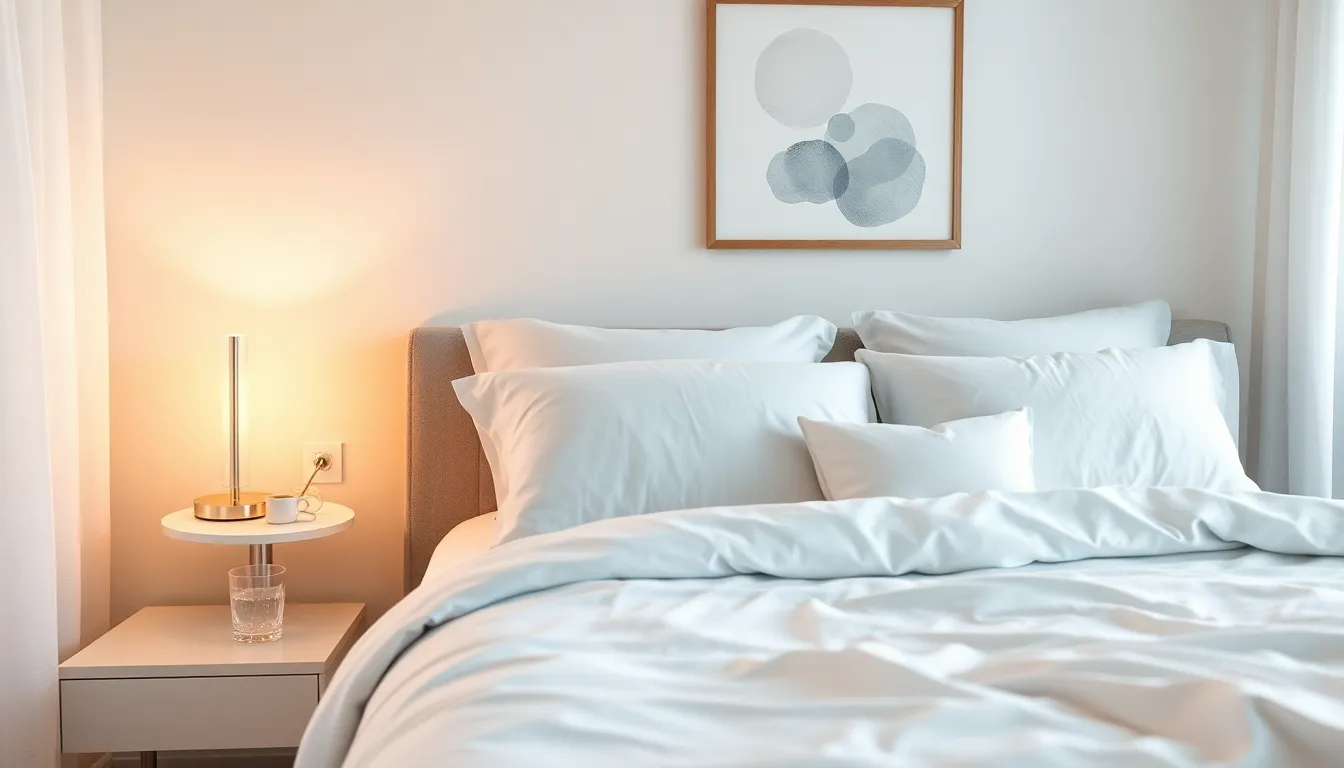Table of Contents
ToggleWhen was the last time you crawled into bed feeling like a million bucks? If you can’t remember, you’re not alone. Many people underestimate the importance of a good night’s sleep, often viewing it as a luxury rather than a necessity. But here’s a little secret: sleep is like a magic potion that rejuvenates the body and mind. In this text, we’ll explore why rest is so vital, how to elevate your sleep game, and maybe even throw in a chuckle or two about those late-night Netflix binges. So, grab your favorite pillow and prepare to learn how to truly “rest well”.
Understanding the Importance of Sleep

Sleep, it’s not just for the lazy or the cats lounging in the sun. Understanding the significance of sleep can transform one’s life, enhancing both physical and mental health in numerous ways.
Health Benefits of a Good Night’s Sleep
A good night’s sleep is like a secret weapon for your body. The benefits are numerous: it helps regulate your hormones, boosts your immune system, and lowers the risk of chronic diseases. Studies show that people who sleep well have better cardiovascular health and sharper cognitive function. Sleep restores the body’s physical systems, allowing the muscles to recover and the heart to rejuvenate after a long day. It’s essentially a nightly reset button, where the body heals and prepares for the challenges of the next day.
Mental and Emotional Well-Being
Ever notice how everything feels tougher after a sleepless night? Mood swings, irritability, and even bouts of anxiety can creep in when rest is short. Quality sleep plays a critical role in mental health, contributing to emotional stability and resilience against stress. Well-rested individuals often experience better concentration, improved decision-making abilities, and a greater sense of overall happiness. In simple terms, rest well, and your brain will thank you by working more efficiently.
Improving Physical Health
Physical health and sleep are intertwined, forming a vital connection that can lead to an improved quality of life. Failure to recognize this bond can lead to unfortunate physical consequences.
Common Sleep Disorders and Their Impact
Sleep disorders such as insomnia, sleep apnea, and restless leg syndrome affect countless individuals. These conditions often lead to excessive daytime fatigue, decreased performance, and an array of health problems ranging from obesity to hypertension. For example, research indicates that individuals suffering from sleep apnea, a condition where breathing temporarily stops during sleep, are at a significantly higher risk of heart problems. Recognizing the signs and seeking treatment early can dramatically enhance one’s physical well-being and quality of life.
Tips for Achieving a Restful Night
Achieving a restful night is not just about hitting the pillows: it involves a set of wise choices that build towards sleep success. With these tips in hand, a good night’s sleep is only a few steps away.
Creating the Ideal Sleep Environment
Step one? Craft a sleep sanctuary. The ideal environment is cool, dark, and quiet, providing the perfect conditions for sleep to take place. Consider using blackout curtains to block out light and earplugs to drown out disruptive sounds. Aromatherapy, particularly the soothing scent of lavender, can also create an inviting atmosphere. Investing in comfortable bedding is crucial: a good mattress and cozy blankets make all the difference.
Establishing a Relaxing Bedtime Routine
Rushing into bed after a long day is a recipe for insomnia. Instead, establish a calming routine before sleep. Activities such as reading a book, meditating, or practicing gentle stretches can signal the brain that it’s time to wind down. Aim to go to bed at the same time every evening, creating consistency that helps regulate your body’s internal clock. Remember, all those late-night TikTok scrolling sessions? They might need to take a back seat for the sake of sweet dreams.
Diet and Lifestyle Choices for Better Sleep
What we put into our bodies can have a substantial effect on how we sleep. A few thoughtful choices about diet and lifestyle can lead to better overall rest and rejuvenation.
The Role of Exercise on Sleep Quality
Regular physical activity is a game-changer for sleep quality. Engaging in aerobic exercise helps adjust the body’s internal clock and can lead to deeper, more restorative sleep. Even a brisk walk can do wonders. But, timing is crucial. Exercising too close to bedtime might have the opposite effect, making it harder to fall asleep, think of it like revving up a car when all you want is to park it for the night.
Foods That Promote Restorative Sleep
What’s on your dinner plate matters, too. Foods rich in magnesium, like nuts and leafy greens, can help relax muscles and promote better sleep. Tryptophan, found in turkey and dairy, can also kickstart the production of sleep-inducing serotonin. But, it’s wise to steer clear of caffeine and heavy meals right before bed. Surprise. That midnight snack might be delightful, but it could also keep you awake counting sheep.




